|
|
|
|
Surveying the wreckage of the Coalition’s election campaign, former treasurer Josh Frydenberg made a crucial admission: Australia has not been “well served” by the culture wars over climate.
Saturday’s unceremonious ousting of the government by climate hawk candidates – Green, teal and, albeit to a lesser extent, Labor – suggests the Coalition can no longer win votes by stoking conservative scepticism on climate change.
But how did the climate culture wars start? Why did scepticism and denial come to be a significant element of the conservative viewpoint? As Matthew Hornsey and his coauthors note, the climate wars were triggered deliberately to slow the move away from fossil fuels.
Now, at long last, this roadshow is running out of road. Research is showing a welcome weakening of conservative-sceptic links in Australia. Other conservative parties – notably in the United Kingdom – have already undergone a climate pivot. In the wake of this rejection by the electorate, it may well be time for Australia’s conservatives to quietly simmer down too.
The Conversation has published more than 5,700 articles by climate scientists since we launched in 2011, and we’ll continue to shine a light on this important topic throughout the next term of federal parliament. Please support this vital work with a donation of whatever you can afford, and join thousands of civic-minded people who are already helping us produce quality journalism.
|

|
Doug Hendrie
Deputy editor, Environment + Energy
|
|

Matthew Hornsey, The University of Queensland; Cassandra Chapman, The University of Queensland; Jacquelyn Humphrey, The University of Queensland
Who started the culture war on climate change? And are we nearing its demise? Our new research provides some clues.
|

Jessica Holloway, Australian Catholic University
Schools barely rated a mention in the election campaign. But the incoming Albanese government faces a sector in crisis.
|
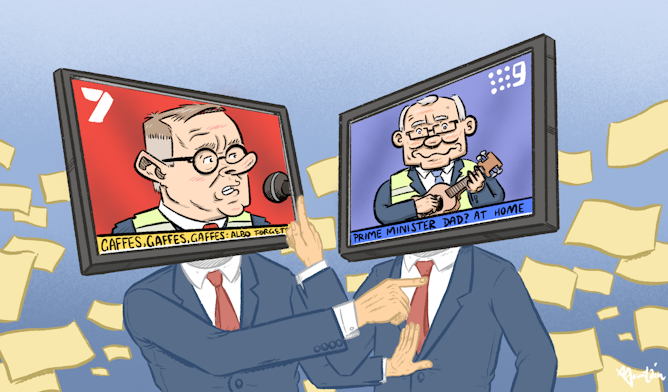
Denis Muller, The University of Melbourne
The major parties have come to control the way the media can cover election campaigns – leading to dress-up stunts and gotcha questions instead of meaningful journalism.
|

Elaine Nash, University of South Australia; Basil Tucker, University of South Australia
Research shows there can be profound business benefits to hiring people living with intellectual disability.
|

Peter Martin, Crawford School of Public Policy, Australian National University
Low-wage earners are going backwards. Here’s why they deserve an increase in the minimum wage by $1 an hour from July 1.
|
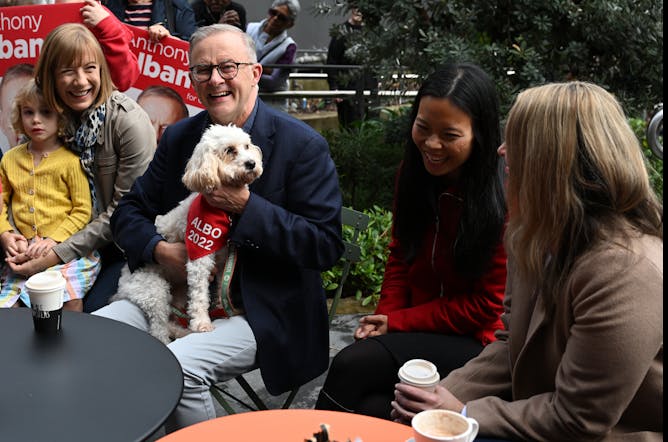
Benjamin Clark, The Conversation
In this episode of Below the Line, we dissect the election result and how the media's "presidential–ised" coverage looks in light of it.
|
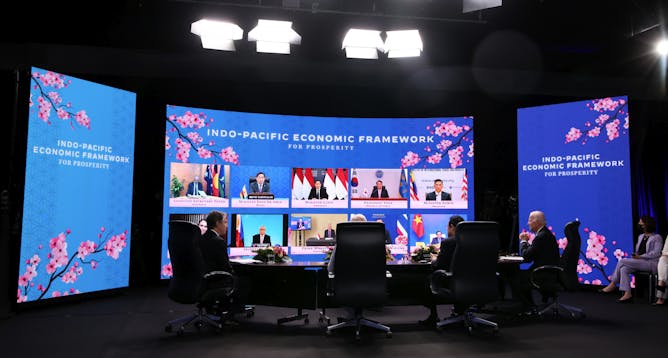
Jane Kelsey, University of Auckland
For years, New Zealand has tried to separate its economic dependency on China from its pro-Western strategic alliances. The new Indo-Pacific Economic Framework tests that balancing act even more.
|
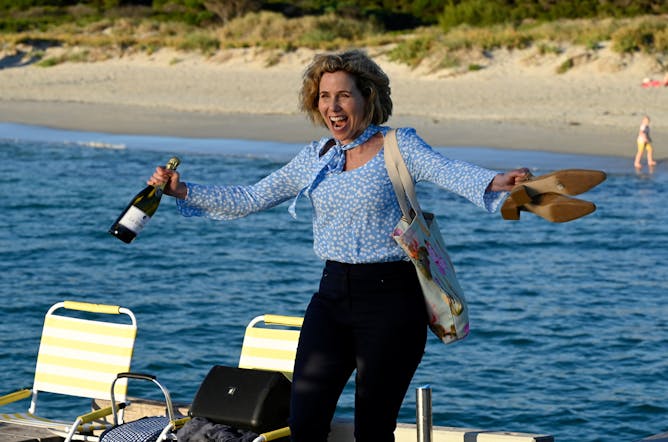
Debra Dudek, Edith Cowan University; Elizabeth Reid Boyd, Edith Cowan University; Madalena Grobbelaar, Edith Cowan University
Sadly, the sexual desire of women over 50 is often unrepresented, misrepresented, and shown as comedic in culture – the new Australian film depicts a different reality.
|
Politics + Society
|
-
Tim Soutphommasane, University of Sydney
It may feel like a subplot for now, but this could end up being just be as significant as the teal revolution.
-
Kelly Menzel, Bond University
Universities can be hostile, overwhelming and unwelcoming places for many First Nations Peoples working in academia. More needs to be done to ensure culturally safe workplaces.
-
Michelle Grattan, University of Canberra
The Quad summit in Tokyo has praised Australia raising its ambition on climate change, after Anthony Albanese told fellow leaders his government would do more to assist Pacific countries address it.
-
Michelle Grattan, University of Canberra
Michelle Grattan discusses politics with politics + society editor, Amanda Dunn
|
|
Health + Medicine
|
-
Alexander Holden, University of Sydney
Positive patient reviews will soon be legal to use in medical advertising in Australia. How powerful is word-of-mouth promotion for health services?
-
Christian Moro, Bond University
It all comes down to an oily secretion from special glands beneath our skin, which are very prevalent under the armpits, and more active at certain times.
-
Peter Breadon, Grattan Institute
Poor areas are more likely to have low COVID vaccination rates, even though residents in these areas have greater exposure to the virus.
|
|
Science + Technology
|
-
Aaron J. Snoswell, Queensland University of Technology; Henry Fraser, Queensland University of Technology; Rhyle Simcock, Queensland University of Technology
Our research on a recent Australian court case shows how experts and lawyers can overcome opaque AI technology. But regulators could make it even easier, by making AI companies document their systems.
-
Rita Matulionyte, Macquarie University
The technology is currently being trialled outside of Australia. It’s one of the first major attempts to bring it to western markets on a large scale.
|
|
Environment + Energy
|
-
Kate Crowley, University of Tasmania
In 2022, the ‘Greenslide’ took seats from major parties. Here’s how they did it.
-
Simon Kingham, University of Canterbury
Transport planners estimate money spent on high-quality cycling infrastructure yields benefits between ten and 25 times the costs.
-
Jen Purdie, University of Otago
The New Zealand government has set the goal of net zero by 2050 but to get there, New Zealanders will need to let go of our big cars and embrace smaller options.
|
|
Education
|
-
Lucinda McKnight, Deakin University
The Ukraine war shows how important agile and critical social media use can be. It’s a reminder that our English curriculum in schools is out of touch with our world of digital communication.
|
|
Arts + Culture
|
-
D. Bondy Valdovinos Kaye, Queensland University of Technology
On Sunday, popular American singer-songwriter Halsey shared a video calling out their label for demanding a viral TikTok before releasing a new song. The video went viral.
|
|
Books + Ideas
|
-
Sascha Morrell, Monash University
It is one of Dickens’ best loved novels and an exposé of the class system, but the book’s depiction of women has proved divisive.
-
Helen Young, Deakin University
More than 60 million copies have been sold of James Herriot’s tales of life as a vet in the Yorkshire Dales. What is the key to their continued appeal?
|
|
Business + Economy
|
-
Andrew Stewart, University of Adelaide
Lifting wages will be a priority for the Albanese government to ease the cost of living. But the unions and the Greens are likely to push for more changes to tackle problems with the Fair Work system.
|
|
| |
Featured jobs
|
|
|
| |
| |
| |
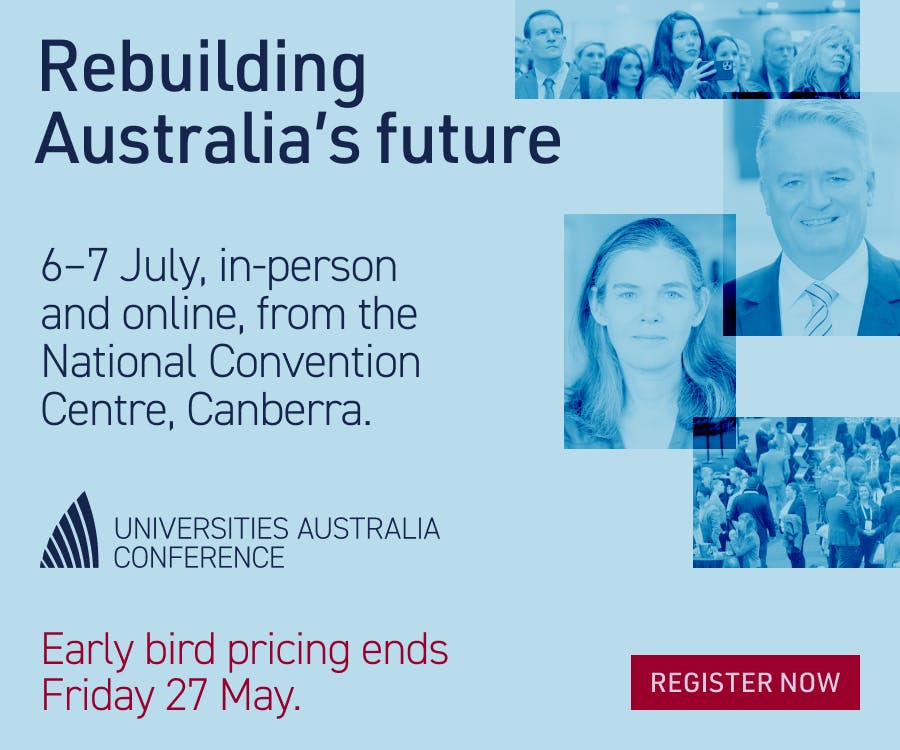
|
| |
| |
| |
Featured Events, Courses & Podcasts
|

|
— Victoria, Australia — The Conversation Weekly Podcast
|

|
— Level 21, 15 Broadway, Ultimo, New South Wales, 2007, Australia — University of Technology Sydney
|

|
— Online, Melbourne, Victoria, 3145, Australia — Monash University
|

|
— 270 Joondalup Drive, Joondalup, Western Australia, 6027, Australia — Edith Cowan University
|
|
|
|
| |
| |
| |
| |
| |
|
|
|
|
|
|
|